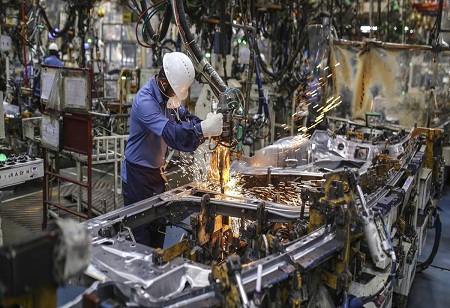Manufacturers today are challenged to meet customer expectations on various fronts. There are several considerations to be pondered such as products must quickly enter the market, the product should be of high quality, the product should possess the right features, and be priced appropriately in order to build and retain customer loyalty.
The current market demands force manufacturers to evaluate their products and continually improve their supply chains, manufacturing operations, and facilities. This is where
Manufacturing consultants come into the picture.
Manufacturing consulting facilitates organizations in finding cost-effective and efficient solutions to their manufacturing needs. During the production phase of the product development process, a manufacturing consultant offers solutions, training, and implements action items. Manufacturing consulting enables companies to not only optimize system efficiency, throughput, and reliability but also minimize waste throughout the manufacturing process.
The production phase is an important one that mainly focuses on developing the appropriate infrastructure in preparation for higher volume production. There are numerous reasons why an organization needs manufacturing consultation. A Manufacturing consultant helps a company right from finding raw materials to creating QC Specifications.
“The need for manufacturing consulting is increasing as the industry wants to be more competitive and is stuck with lack of in-house expertise. Some of the major factors driving the growth of this market include the fluctuating market demand, system-driven approach followed by organizations, etc.,” says Kishore Chakravarthy, Co-Founder at Lean On Us.
Establishing the necessary infrastructure and vendor channels
Organizations that have completed the design phase and are prepared to commence production can be assisted by a manufacturing consultant in establishing all the necessary infrastructure and vendor channels. This includes activities such as identifying raw materials vendor, identifying best vendors to manufacture components, identifying vendor for assembly/test, creating Quality Control specifications for the various components or assembly, and identifying warehousing, and distribution centers.
While the goal is to make sure strategy and tactical implementation together deliver success, a consultant can also collaborate with the client’s internal team and leverage their own resources for additional added value, such as manufacturing, packaging, and business. For additional efficiencies, many of the manufacturing consultants can assist with manufacturing strategy and lean product development. In most cases, a manufacturing consultant may be brought on board for validating not only the processes the organization has already put in place but also the resources they’ve already chosen.
Not just that, consultants can also provide growth strategies, help with in-house training if needed as part of a long-term solution, implement lean operations, and also optimize the supply chain. The major advantage of seeking a consultant is that they can step in for either any one or all of the aforementioned steps to be the ideal partner for the enterprise.
While consultants bring outside experience that can lead to a positive impact, the experienced consultants can generally show they understand what you are going through not only on a professional but also on a personal level and help in learning from their experiences.
Manufacturing consultants can lay the foundation for a successful product development project. Therefore, the right understanding of what manufacturing consulting is and how can your organization leverage it will not only help in cost savings but also result in improved efficiencies over time.
